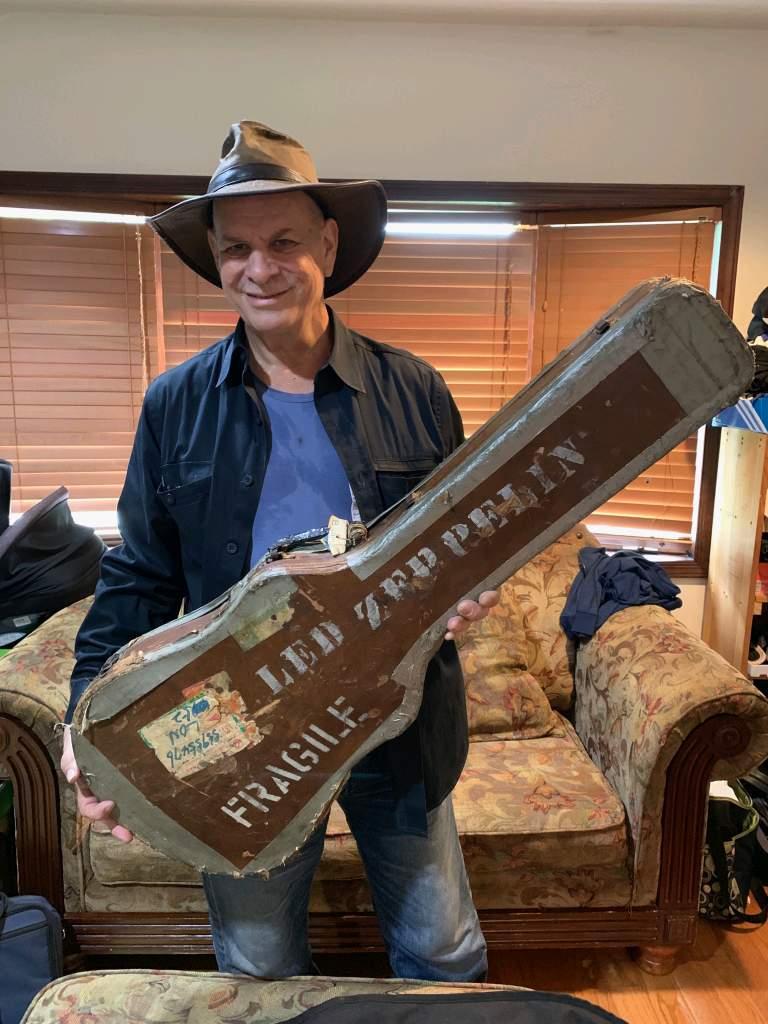
You can’t make this stuff up. A teenaged fan of Led Zeppelin goes to see his favorite band perform at a local arena. When the concert ends, he somehow is given a guitar case to keep. And not just any guitar case, but the one that, while now damaged, had previously housed the Les Paul guitar of its owner, Jimmy Page. Nearly half a century later, that fan, Jeff Curtis, and himself a musician who was inspired to learn guitar because of Page, is able to reunite the historic case with the classic rock legend.
Best Classic Bands spoke with Curtis about the wild tale and how the “burden” of keeping it secret all these years and returning it to Page was a relief.
Curtis—65 years-old when we spoke with him in 2019—grew up on Long Island. “In 1969, when I was 14, a friend brought over Led Zeppelin II,” he says. “I thought, ‘That’s it; I want to learn how to play guitar,’ and I taught myself how to play.” He got to see his favorite band play at Madison Square Garden in 1970.
“In June 1972, I went to see Led Zeppelin perform at the Nassau Coliseum. There was one particular roadie, Mick Hinton–John Bonham’s drum tech–whom I had said hello to the previous year, when the group played the Garden in ’71. After the Coliseum concert ended, I went up to the row of seats behind the stage and yelled down to him. He seemed to recognize me from the ’71 concert and yelled hello back.
“On a whim, I asked if I might come down and help them pack up the equipment. To my complete surprise, he said yes. I asked, ‘How do I get down there?’ He then tossed a guitar case to me! I walked down, past two security checkpoints with the case in hand, up onto the stage, and handed it back to him. After the few minutes it took to pack up the drums, Mick said to me, ‘You can have that.’
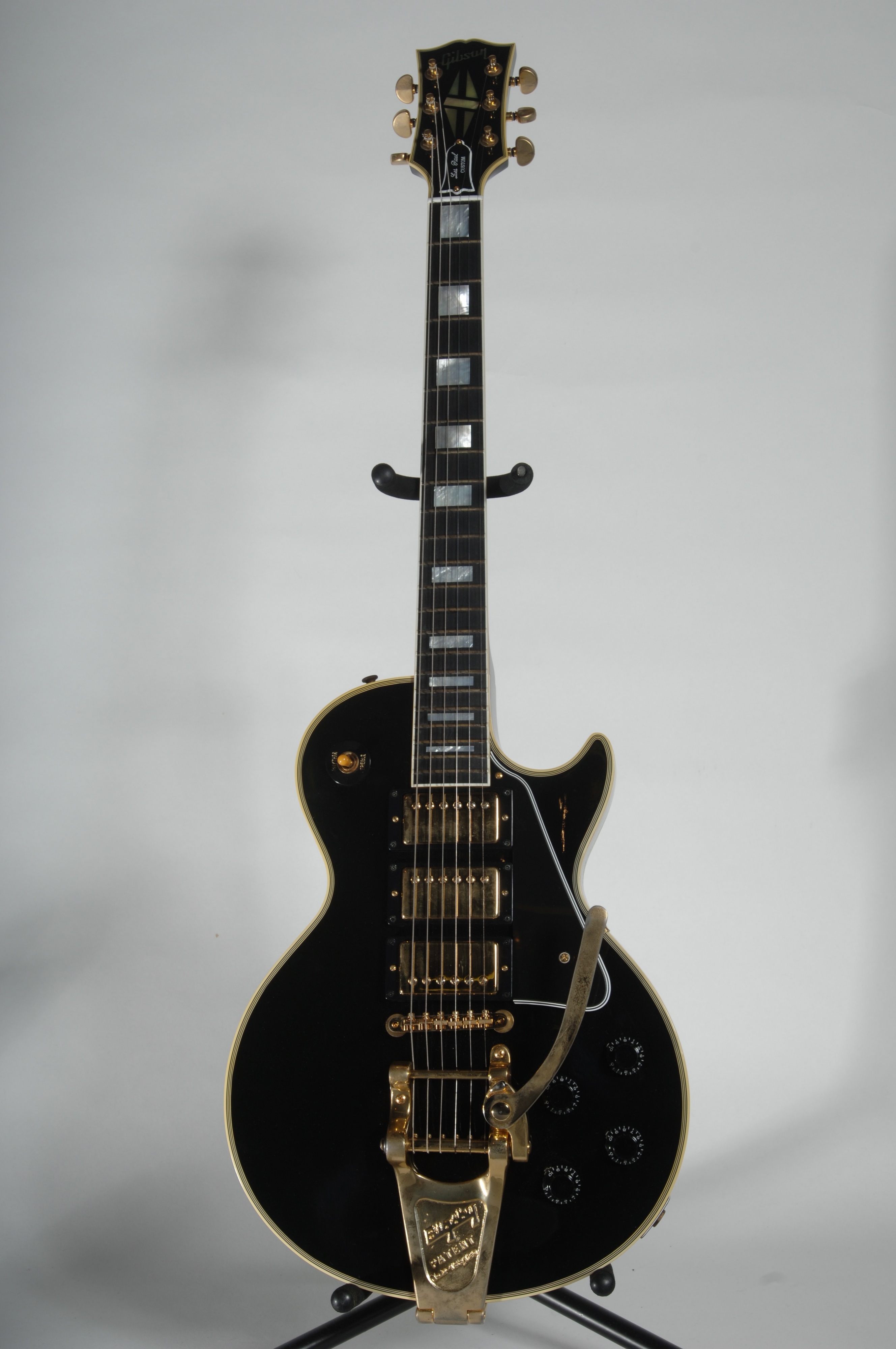
“I was speechless.” Curtis, incredulous, asked the roadie, “Where will the guitar go?” Mick showed him Page’s number one Les Paul guitar in its brand new anvil road case. “The case I was given was being discarded that night since its back was crushed and no longer afforded protection to the guitar. Talk about being in the right place at the right time!”
As Curtis notes, “So began my decades-long possession of a genuine rock ‘n’ roll artifact. But I also realized from that point onward that it was something I couldn’t talk about. While there have been a small handful of friends over the years who were aware that I had it, I had kept this a deep secret over the past 47 years in fear that someone might either burglarize my house or worse, threaten me in order to steal it. For this reason, I had decided a couple of years ago that I no longer wanted the guitar case.”
He told Best Classic Bands, “The band’s popularity has grown and grown. The case had become a liability, in a sense. All it meant was that I had a material object. I didn’t want the responsibility anymore.
“Despite its certain significant monetary value to a collector, I had also decided that I wouldn’t ever sell it since making money off someone else’s fame is simply against my principles. I decided that I would find a way to personally return it to Page. But how to accomplish this? How would I get in touch with the right people to set up a meeting?”
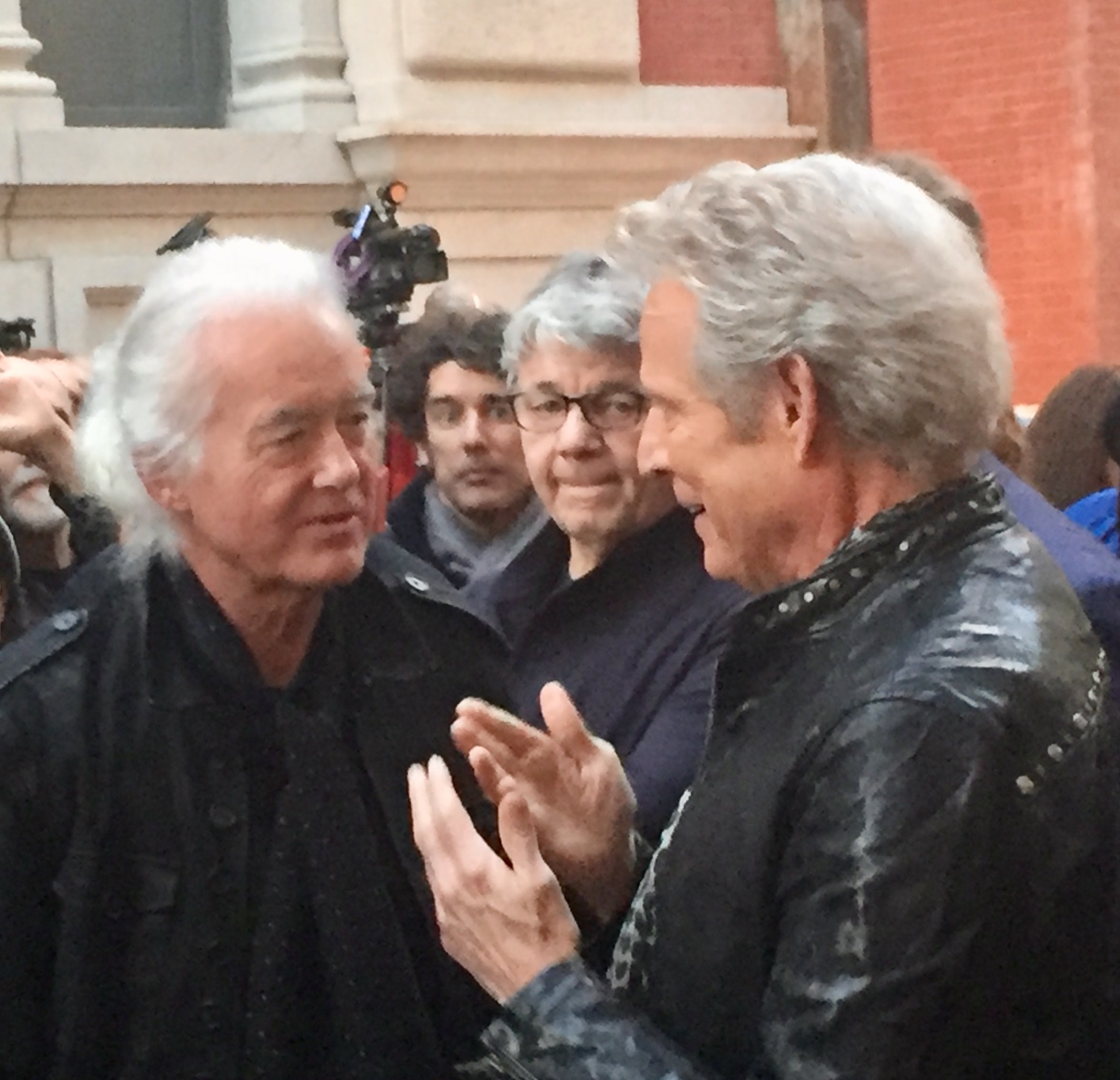
In July 2019, Curtis went to see the terrific “Play It Loud: Instruments of Rock & Roll” exhibit at the Metropolitan Museum of Art in New York City. Page’s number one Les Paul guitar was one of the prominent instruments on display. Curtis called the museum and spoke with the curator’s assistant. “I explained that I was trying to find a way to get it back to Jimmy.” He sent the museum an e-mail with photos of the case.
Just two weeks later, he got a call from a man named Perry, who said he worked with Page, and had been sent Curtis’ documentation. They arranged a meeting to allow Perry to examine the case and take several detailed photos. “There are photos of the case in Jimmy’s coffee table book,” Curtis says, and Perry could see it was legit.
Related: Our coverage of Page at the opening of the Met Museum’s exhibit
About a month later, Curtis received word that Page would be delighted to meet him and have the case returned. On a September day in New York City, Curtis, along with his two daughters and a close friend, met Page.
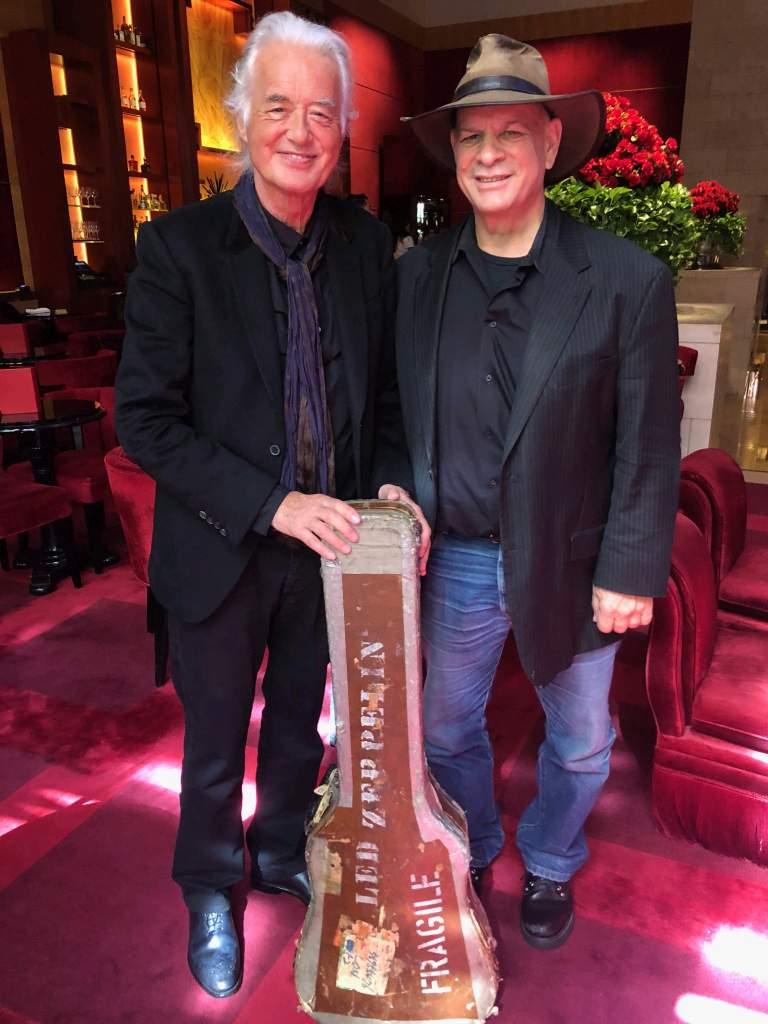
The expression on Page’s face was priceless. “He was like a kid in a candy store,” said Curtis. Page exclaimed, “What memories this brings back!” “He said ‘Thank you!’ and I said ‘Thank you!’ We talked about Led Zeppelin. I asked him where he got the inspiration for the tuning of ‘The Rain Song’ and he said he basically made it up. I gave him copies of both my CDs, which he said he would listen to.
“He brought me a special limited box set edition of Led Zeppelin II and signed its book as well as another book I had brought with me. I can honestly say that after the first few minutes, my nervousness completely disappeared and it felt like I was talking with an old friend. Nevertheless, the experience of having had the opportunity to sit down with the very person whose music not only greatly influences my own but also inspired to me to initially pick up and learn to play the guitar almost 50 years ago is something that I will never forget!”
The guitar case, he said, “is exactly where I want it to be.”
Curtis had actually met Page, albeit briefly, twice before. At that same 1972 concert, while Curtis held the case that the roadie, Mick, had given him, Page came back out as the crew was wrapping things up. “I said his name and he turned around and shook my hand. When he spotted the case, he said, laughing, ‘I see they laid that one on you.'” The then-28-year-old musician apparently didn’t foresee the case’s significance.
Fifteen years later, Curtis saw Page perform a NYC club gig, and told the legend, “You’re the reason I started playing guitar.”
Curtis transitioned from electric to acoustic many years ago. He released two of his own CDs, 1998’s Dreams and 2003’s The Next Place. He had been writing new material and release a third, Find a Way, in 2021.
When Best Classic Bands spoke with him about his Page story, he was amazed at how quickly his September 16, 2019, Facebook post had spread. Within 24 hours, it had over 2,100 shares, 1,500 comments and 8,500 reactions.
“It blows me away,” he said. Curtis died on Jan. 18, 2022.

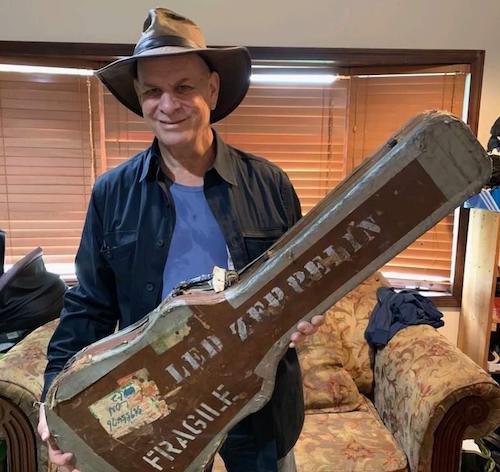
1 Comment
Perry Margouleff, who worked with me at Guitar World, is the go-between in this story.
For some more ramblings of the glory days of music journalism, go to DoctorNoemedia.blogspot.com.